
THE VOICE OF INTERNATIONAL LITHUANIA
|
VilNews has its own Google archive! Type a word in the above search box to find any article.
You can also follow us on Facebook. We have two different pages. Click to open and join.
|
Featured black
- Posted by - (1) Comment
The Global, Economic, Financial Crisis:
We need something new. A paradigm shift in our thinking
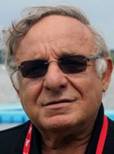
Dr. Ichak Adizes
A blog by Dr. Ichak Adizes
I am in Moscow. Watching the BBC. There is a live round table discussion with very prominent economists as to what to do about the global, financial, economic crisis, in the USA and in Europe. Their concerns: unemployment, declining economic growth, recession, potential for country defaults etc.
Around the table are the managing director of the IMF, the CEO of Pimco, a distinguished professor of economics from Chicago and another person with a heavy Italian accent whose name I failed to record.
To summarize what they are saying: there is a crisis of unemployment, the financial markets are sick and there is declining economic growth. Result: a serious crisis of a potential for a double dip recession and potential for a default by some countries.
They recommend different solutions how to solve the financial crisis, how to improve the rate of employment etc.
The common denominator to their solutions is that they are trying to get back to what we HAD before, which is full employment, healthy financial markets and economic growth.
It will not work.
If we succeed to go BACK, it will be only a temporary solution and the crisis will come back as a tsunami, much bigger, later on.
Why?
Let us analyze the problem.
Economic growth, unemployment, financial crisis, double dip recession, dangers of default…are not of equal nature.
My analysis is that the driving force is economic growth which provides for full employment and for which healthy financial markets are necessary. That means that economic growth is the goal and full employment and healthy financial markets are the means.
Double dip recession and dangers of default are manifestations of lack of economic growth.
The problem is with the goal. And from there stem the problems with the means.
What is the problem with the goal of economic growth? (My focus here is exclusively on developed nations. What to do with emerging, developing nations, will be addressed at the end of this insight.)
In order to have economic growth, we need to have growing markets.
How do you have growing markets?
One way is to have a growing population. That apparently is not enough. Businesses create markets by creating needs, needs markets did not know they had. Look at the choices offered to consumers on any product in a supermarket. Or a department store. Furthermore, to create markets, to create demand, products are produced with planned obsolescence in mind.
But what is the result of having continuously growing markets as a goal?
It is not sustainable.
If we paraphrase Malthus and instead of population growth say “ economic growth,” and instead of food production say “ natural resources”, we can see that linear progression of economic growth MUST eventually bring us to a point where there are limits to growth: We ARE destroying the planet.
So the solution to the financial, economic, unemployment crisis is not more of what used to be, more economic growth. We need something new. A paradigm shift in our thinking.
Economic growth should not be our deterministic goal, a goal where more is better, a goal we are determined to maximize. Economic growth should now become a constraint goal: no less than x%, when the “ x” is determined by population growth and real needs, not by artificial needs generation.
What should be the deterministic goal than, if it is not economic growth?
Quality of life rather than the standard of living.
Who says we should have full employment? Why not have very early retirement? Why not have only three working days in a week? Earn enough to satisfy your basic needs. Not more and more and more. Just enough.
But a decimated demand and planned unemployment will dry the need for credit and for business growth and put the financial institutions in trouble.
I sure hope so.
The solution to our present problems is not going back to our past but creating a new future.
Now, what about developing, emerging, nations?
For emerging ones and especially those unfortunate to suffer from malnutrition, from lack of health treatment facilities etc there the need for economic growth is REAL.
There, the goal SHOULD BE economic growth but please notice: it is not going back for them. It is going forward. They need economic growth. They never had it.
Here the business community of the developed world should do its best to develop the market, satisfy the needs of the population.
“But there is no market there.” “No buying power will be the excuse.” Right. That is the true challenge to the business community. The true challenge. Not the artificial self created challenge of how to provide more of something people have too much of it already.
Sincerely,
Dr. Ichak Kalderon Adizes
Ref: http://www.adizes.com/blog/?p=990
- Bookmark :
- Digg
- del.icio.us
- Stumbleupon
- Redit it
- Posted by - (0) Comment
How I came to Lithuania 21 years ago (5 of 6)
Some private memories by Aage Myhre, VilNews Editor-in-Chief
aage.myhre@VilNews.com
January 1991:
With Landsbergis behind barbed wire and homemade barricades
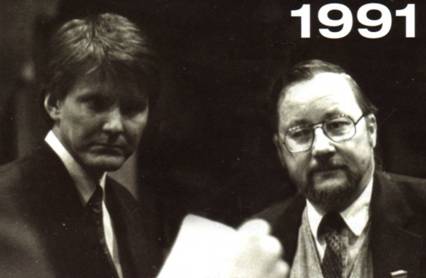
19 January 1991: The author with President Vytautas Landsbergis in the Lithuanian Parliament (Seimas), while the Soviet troops and tanks continue to surround the building.
"Lithuanians, do not resist, your government has betrayed you. Go home to your families and children."
This was the repeated announcement from the Soviet military vehicles with loudspeakers on the roofs, so-called sound trucks, that rolled through the streets of Vilnius in January 1991. But fortunately for Lithuania and the United Europe that we now take more or less for granted, there was a music professor and a complete small nation that wanted it all differently.
Had it not been for this peaceful struggle of recovered freedom against an invasion and occupation, the people of the Baltic States never wanted or agreed to, the map of Europe would most likely have looked quite different today.
If there were those in the West who had not heard of Lithuania before, they almost certainly had by the end of the day 13 January 1991. It was the day that Soviet troops struck in Vilnius. The bloodshed that followed made headlines around the world. The attack was apparently an attempt to stop the Lithuanian independence movement in its very beginning.
When the smoke of the Soviet weapons ceased, more than a dozen people had been killed, hundreds injured. Soviet’s attack, and especially the killings at the TV tower, brought not only fame and sympathy for Lithuania from around the world, it was also a defining moment for the Lithuanians themselves.
The bloodshed meant that a point of no return had been crossed. If there was anyone who until now had believed that a peaceful settlement with Moscow was possible, it was now clear to everyone that such a thing was unthinkable.
To read more, go to our SECTION 13 – THE WORLD IN LITHUANIA
- Bookmark :
- Digg
- del.icio.us
- Stumbleupon
- Redit it
- Posted by - (2) Comment
How I came to Lithuania 21 years ago (5 of 6)
Some private memories by Aage Myhre, VilNews Editor-in-Chief
aage.myhre@VilNews.com
January 1991:
With Landsbergis behind barbed wire and homemade barricades

19 January 1991: The author with President Vytautas Landsbergis in the Lithuanian Parliament (Seimas), while the Soviet troops and tanks continue to surround the building.
"Lithuanians, do not resist, your government has betrayed you. Go home to your families and children."
This was the repeated announcement from the Soviet military vehicles with loudspeakers on the roofs, so-called sound trucks, that rolled through the streets of Vilnius in January 1991. But fortunately for Lithuania and the United Europe that we now take more or less for granted, there was a music professor and a complete small nation that wanted it all differently. Had it not been for this peaceful struggle of recovered freedom against an invasion and occupation, the people of the Baltic States never wanted or agreed to, the map of Europe would most likely have looked quite different today.
If there were those in the West who had not heard of Lithuania before, they almost certainly had by the end of the day 13 January 1991. It was the day that Soviet troops struck in Vilnius. The bloodshed that followed made headlines around the world. The attack was apparently an attempt to stop the Lithuanian independence movement in its very beginning. When the smoke of the Soviet weapons ceased, more than a dozen people had been killed, hundreds injured. Soviet’s attack, and especially the killings at the TV tower, brought not only fame and sympathy for Lithuania from around the world, it was also a defining moment for the Lithuanians themselves.
The bloodshed meant that a point of no return had been crossed. If there was anyone who until now had believed that a peaceful settlement with Moscow was possible, it was now clear to everyone that such a thing was unthinkable.
Professor Vytautas Landsbergis was the central actor in the drama that took place . The colourful, sometimes tempered music professor who was elected Lithuania's president (chairman of the parliament) in March 1990, and from then on become the symbol of the Lithuanian liberation movement. Before the attack in January 1991, his constant talks about breaking free from the Soviet Union, and Lithuania's moral right to do just that, alarmed observers in the West almost as much as in the Kremlin. When the rage was taken completely out of hand in January 1991, Gorbachev seemed as if he did not understand what was happening right in front of him.
Our little Norwegian delegation met with Landsbergis in the parliament on the 19th of January 1991. He lived there, entrenched, protected by his own people. Tens of thousands were ‘camping’ outside the building, inside homemade barricades of concrete blocks and barbed wire. Trucks and tractors were also part of the barricades. In a circle further out stood the Soviet forces, ready to attack when the command word would be given. Fortunately it didn’t happen. The pressure had become strong from all around the world.
We got through the barricades. The Ministry of Foreign Affairs had provided us with appropriate admission papers. It was a moving encounter with a brave man we experienced inside. The little stroke that fell the huge oak. World history was created there and then. In front of our eyes. We were the eye witnesses.

Bonfires outside the Parliament, 19 January 1991.
Photo: Aage Myhre.

Bonfires, day and night, outside the Parliament, January 1991.
Photo: Aage Myhre.

A solid human barricade surrounding the Parliament, January 1991.
Photo: Aage Myhre.

With Landsbergis inside the Parliament, 19 January 1991, and his handwritten greeting to the author.

‘Homemade’ barricades of concrete blocks around the Parliament..
Photo: Aage Myhre.

On the way down Gedimino prospekto towards the Parliament an ice-cold January day 1991.
Photo: Aage Myhre.
- Bookmark :
- Digg
- del.icio.us
- Stumbleupon
- Redit it
- Posted by - (0) Comment
How I came to Lithuania 21 years ago (4 of 6)
Some private memories by Aage Myhre, VilNews Editor-in-Chief
aage.myhre@VilNews.com
January 1991:
Soviet rolls back

18 January 1991: It is very touching to see how the Balts act to keep their newfound freedom and protect their home country during the very difficult January days of 1991. Here, at the entrance to the Lithuanian Foreign Ministry, the young men have put on homemade clothes that are meant to look like uniforms. They carry rifles and other weapons they have found in their homes. Sand bags have an important symbolic effect. Brave guys!
Photo: Aage Myhre, 18 January 1991.
In the summer of 1990 we heard Parliament President Landsbergis tell us that he feared a new Soviet attack after Lithuania had declared independence in March of that year. “For Gorbachev, our freedom declaration was very hard to accept, although he towards western countries pretended that everything was in perfect order," Landsbergis told us. When we first came to Lithuania the autumn of 1990, finding everything calm and balanced, it was hard to believe that there was any real reason for his fear.
But he's right. In January 1991 Soviet tanks again roll through the streets of the capitals Tallinn, Riga and Vilnius. Soviet Special Forces take control of radio and television stations, surround the parliaments, ready to use armed force against the governments of the three countries. In Vilnius 14 young people are killed in their attempt to stop the attackers.
To read more, go to our SECTION 13 – THE WORLD IN LITHUANIA
- Bookmark :
- Digg
- del.icio.us
- Stumbleupon
- Redit it
- Posted by - (3) Comment
How I came to Lithuania 21 years ago (4 of 6)
Some private memories by Aage Myhre, VilNews Editor-in-Chief
aage.myhre@VilNews.com
January 1991:
Soviet rolls back

18 January 1991: It is very touching to see how the Balts act to keep their newfound freedom and protect their home country during the very difficult January days of 1991. Here, at the entrance to the Lithuanian Foreign Ministry, the young men have put on homemade clothes that are meant to look like uniforms. They carry rifles and other weapons they have found in their homes. Sand bags have an important symbolic effect. Brave guys!
Photo: Aage Myhre, 18 January 1991.
In the summer of 1990 we heard Parliament President Landsbergis tell us that he feared a new Soviet attack after Lithuania had declared independence in March of that year. “For Gorbachev, our freedom declaration was very hard to accept, although he towards western countries pretended that everything was in perfect order," Landsbergis told us. When we first came to Lithuania the autumn of 1990, finding everything calm and balanced, it was hard to believe that there was any real reason for his fear.
But he's right. In January 1991 Soviet tanks again roll through the streets of the capitals Tallinn, Riga and Vilnius. Soviet Special Forces take control of radio and television stations, surround the parliaments, ready to use armed force against the governments of the three countries. In Vilnius 14 young people are killed in their attempt to stop the attackers.
When these dramatic events take place, the three Baltic States - Estonia, Latvia and Lithuania - already for three years have fought a quiet, heroic struggle against overwhelming odds. Western countries have ignored this, as they did when the Soviet Union annexed the Baltic States during World War II and refused to give these states back their freedom when the war was over.
Now the Balts are again left alone in their struggle for justice. But they refuse to give up!
The most visible symbol of this new battle took place 23 August 1989, when about two million Balts held hands and formed a human chain that stretched 600 kilometres from north to south through the three Baltic States.
The chain marked the 50th anniversary of the Molotov-Ribbentrop Pact between the Soviet Union and Nazi Germany. The pact and its secret protocols divided Eastern Europe in spheres of influence, and led to the occupation of the Baltic States in 1940. Behind this remarkable event in 1989 stood the Baltic independence movements Rahvarinne (Estonia), Popular Front (Latvia) and Sąjūdis (Lithuania).
The 1989 event gave the Baltic activists an opportunity to make the world aware of the illegal Soviet occupation. The authorities in Moscow, however, responded to it all with intense rhetoric, failing to take constructive steps that could have built bridges over the increasing gap between the Baltic States and the Soviet Union. Six months after the protests, Lithuania became the first republic to declare independence after 50 consecutive years of abuse and an occupation the Balts could never accept.
Now, in January 1991, the Soviets new invasion has become a sink or swim for the people here in the Baltic States..
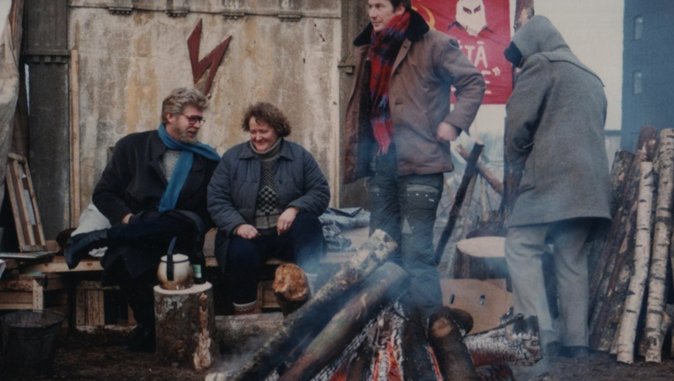
We, our Norwegian team, together with journalists travelled to Latvia and Lithuania as soon as we could after the Soviet attack in January 1991. The Balts refused to accept the Soviet invasion. They did their utmost to protect their governments and media. Here we are with 'activists' in Riga. They light bonfires and stay overnight in tents to demonstrate against the new Soviet assault.
Photo: Aage Myhre, January 1991.

Without the intense media coverage that took place in January 1991 the outcome could well have been another. Occupiers could have re-taken control of the Baltic States. Here a journalist from Norwegian Aftenposten interviews the leader of the Latvian border guards. The international press made a huge effort to make the world know about the atrocities taking place.
Photo: Aage Myhre, January 1991.
- Bookmark :
- Digg
- del.icio.us
- Stumbleupon
- Redit it
- Posted by - (0) Comment
How I came to Lithuania 21 years ago (3 of 6)
Some private memories by Aage Myhre, VilNews Editor-in-Chief
aage.myhre@VilNews.com
Nov 1990: Oil, a girl and
a satellite system


The next day another Norwegian, from STATOIL, arrives in Vilnius. Last summer the company gave financial support to our works for Lithuania. Now we have invited them to have a look at opportunities in the Baltics.
The two other Norwegians travel 300 kilometres northwest of Lithuania the following day, to Mazeikiai Nafta, the country's oil refinery. They come back late that night. With a new business idea: to extract oil from the refinery site. They say that they have waded in black mud, full of oil from numerous leaks from pipes and tanks. They are both shocked at what they have experienced. Soviet Union in a nutshell.
My task, when my friends are wading in oil, is to meet with Lithuania's communications minister, Kostas Birulis (who strangely is fluent in English).
The reason is that Landsbergis, during his visit to Oslo three months earlier, asked us if it was possible to get a gift from Norway, a satellite antenna / telephone system that could be installed in the Lithuanian parliament. He was afraid that the Soviets could again try to take control of Lithuania and cut the normal telephone connections.
Our task after his visit to Oslo was to try to persuade Norwegian politicians and our Norwegian telecom to provide and install such a gift in Lithuania. Telecom's export director was my great supporter of this. He managed to convince Telecom's CEO to go for the unusual project. A leading Norwegian attorney, Leon Bodd, who later became the General Consul of Lithuania in Norway, was also of great help.
Communications Minister Birulis accepts the agreement which I put before him this November day in 1990. In 1991, all details about the financing and installation of the system were settled in Norway and in autumn it was all completed. A huge satellite dish with 'Telecom' logo adorned the roof of parliament for many years to come. A prominent symbol of solidarity and bilateral thinking.
To read more, go to our SECTION 13 – THE WORLD IN LITHUANIA
- Bookmark :
- Digg
- del.icio.us
- Stumbleupon
- Redit it
- Posted by - (3) Comment
How I came to Lithuania 21 years ago (3 of 6)
Some private memories by Aage Myhre, VilNews Editor-in-Chief
aage.myhre@VilNews.com
Nov 1990: Oil, a girl and
a satellite system


The next day another Norwegian, from STATOIL, arrives in Vilnius. Last summer the company gave financial support to our works for Lithuania. Now we have invited them to have a look at opportunities in the Baltics.
The two other Norwegians travel 300 kilometres northwest of Lithuania the following day, to Mazeikiai Nafta, the country's oil refinery. They come back late that night. With a new business idea: to extract oil from the refinery site. They say that they have waded in black mud, full of oil from numerous leaks from pipes and tanks. They are both shocked at what they have experienced. Soviet Union in a nutshell.
My task, when my friends are wading in oil, is to meet with Lithuania's communications minister, Kostas Birulis (who strangely is fluent in English).
The reason is that Landsbergis, during his visit to Oslo three months earlier, asked us if it was possible to get a gift from Norway, a satellite antenna / telephone system that could be installed in the Lithuanian parliament. He was afraid that the Soviets could again try to take control of Lithuania and cut the normal telephone connections.
Our task after his visit to Oslo was to try to persuade Norwegian politicians and our Norwegian telecom to provide and install such a gift in Lithuania. Telecom's export director was my great supporter of this. He managed to convince Telecom's CEO to go for the unusual project. A leading Norwegian attorney, Leon Bodd, who later became the General Consul of Lithuania in Norway, was also of great help.
Communications Minister Birulis accepts the agreement which I put before him this November day in 1990. In 1991, all details about the financing and installation of the system were settled in Norway and in autumn it was all completed. A huge satellite dish with 'Telecom' logo adorned the roof of parliament for many years to come. A prominent symbol of solidarity and bilateral thinking.
Telecom rejects later an offer to become Lithuania's first mobile phone operator. They believe the market is too small. How wrong can one be? STATOIL took the market more seriously and established what became Baltic's leading chain of petrol stations.
I asked her for a dance - now we have danced for 20 years
My first stay in Lithuania lasts four days. The last evening before leaving, after first having had a refreshing walk in the great Vingis park right by the hotel, we, the three Norwegians, are eating dinner in the Hotel Draugyste’s restaurant.
Then she enters, a beautiful young girl together with five men. This is a challenge a recently divorced Norwegian like me cannot resist. I offer her to dance with me. She accepts and the restaurant orchestra plays beautifully. He who claims to be her boyfriend and the four others do not look happy.
She lets me know her name, Egle Bakaityte. She was born and raised in Vilnius but now works in Amsterdam. She is back home in Vilnius only to renew her visa. And so ends the third and last day of my very first visit to Lithuania. It is the 22nd of November 1990.
I go back to Lithuania two to three weeks later. Now with a representative of the Norwegian 'fashion industry'.
Famous for standing behind well-known brands in this sector. I meet Egle also during this visit. A few days go by. We travel with our new guests to the spa town of Druskininkai in southern Lithuania. A romance seems to be brewing.
Egle and I keep in touch when I'm back in Norway again. New Year's Day 1991 she calls me at five o'clock in the morning. I feel uneasy, wondering if something is wrong. Calling this early is not exactly normal. But no, nothing wrong. Only that she had ordered the call the day before and only now being put through ... The Soviet phone system simply works like that... One has to call the ‘central’, and then it’s up to them when they will try to connect you to the one you want to talk to. If one rings a western country, this may take up to a day. The Norwegian satellite facility is not yet installed.
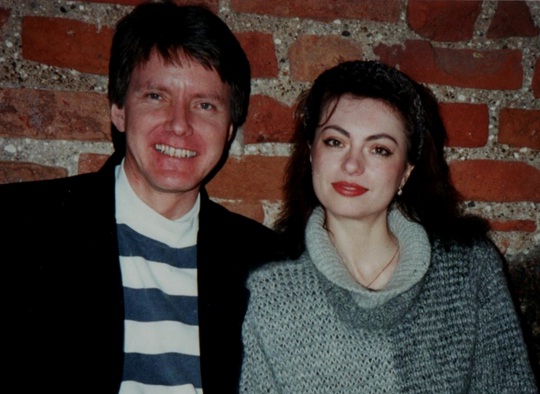
I meet Egle the third day of my very first visit to Lithuania, in November 1990. She 25, I 37.
- Bookmark :
- Digg
- del.icio.us
- Stumbleupon
- Redit it
- Posted by - (3) Comment
Holocaust in Lithuania
Some time ago a reader in the USA wrote the following one-sentence ‘letter’ to the editor of VilNews:
"May Lithuania rot in hell for a 1000 years."

This ‘letter’ resulted in several posts and comments from our readers around the world. We in the editorial team have been very impressed by how informative and balanced most of the posts have been. Probably it is this kind of open, intelligent debate that is needed to build bridges across the gap that emerged in the relationship between Jews and Lithuanians during and after World War II. We thank all who participate, not least the following four: Olga Zabludoff, Donatas Januta, Didier Bertin and Yves Plasseraud:
- Bookmark :
- Digg
- del.icio.us
- Stumbleupon
- Redit it
- Posted by - (1) Comment
How I came to Lithuania 21 years ago
Some private memories by Aage Myhre, VilNews Editor-in-Chief
aage.myhre@VilNews.com
1. Summer of 1990:
Landsbergis to Norway
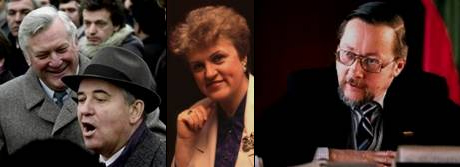
![]()
2. November 1990:
A Volga journey from Riga

![]()
3. Nov 1990: Oil, a girl and
a satellite system


![]()
4. January 1991:
Soviet rolls back

![]()
January 1991:
5. With Landsbergis behind barbed wire and homemade barricades

![]()
6. 1991: Oslo and Vilnius
become twin cities

- Bookmark :
- Digg
- del.icio.us
- Stumbleupon
- Redit it
- Posted by - (1) Comment
How I came to Lithuania 21 years ago (1 of 6)
Some private memories by Aage Myhre, VilNews Editor-in-Chief
aage.myhre@VilNews.com
Summer of 1990:
Landsbergis to Norway
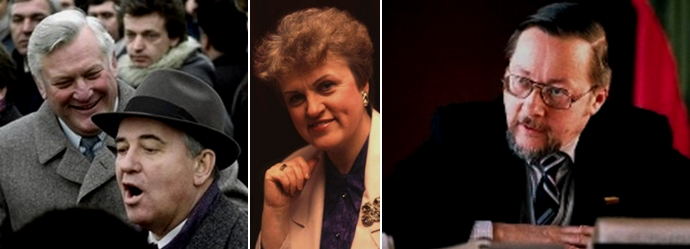
In the summer of 1990 it’s still little known in the west that there once was a country called Lithuania. The fact that this small nation, with its two Baltic neighbours, are engaged in a process of secession from the Soviet Union has still not achieved any major headlines in our western newspapers. The fall of the Berlin Wall is more important. We do not know that the Soviet President, Mikhail Gorbachev, has recently been in Lithuania to meet the country's Communist leader, Algirdas Brazauskas (both pictured left). The fact that Lithuania's prime minister, Kazimir Prunskiene (centre above), has recently been in Norway to try to get the oil company STATOIL to deliver oil to the country, which is now subjected to blockade by the Soviet power, has been heard little about. Then Parliament President Vytautas Landsbergis (pictured right) comes on his first 'official visit' to a Western country, to Norway. That changes a lot.
A young man with a ponytail enters our office community in the centre of Oslo, Norway. It’s a warm, sunny day, mid-summer 1990. Someone has told him that our office, with 16 different small firms, enjoys a relatively large network of contacts, lobbyists perhaps although I do not know much about what that word means. He tells us that he is adviser to a president of a country we have hardly heard of before now. The country is called Lithuania, the president Vytautas Landsbergis, he informs us. The advisor’s name appears to be Ramunas Bogdanas.
What we get to know, is that Landsbergis needs help in finding contacts at the highest Norwegian level in connection with his planned 'official visit' to Norway in late August, the first for a Western country. Bogdanas asks us to undertake such a task. Even if he cannot offer any payment for the job.
We wonder why this Landsbergis has chosen precisely Norway as the first western country to visit on a so-called official basis. Would not the close-lying Sweden have been more obvious? "Sweden accepted the Soviet occupation and annexation of our country during World War II. As early as 1946. Norway never did. Formally, your country still considers Lithuania an independent nation. Therefore he has chosen Norway", explains Bogdanas.
Three of us in the business community sit down to discuss whether we want to accept the proposed mission, Dag Andersen, Bjorn Kittilsen and me. We agree to seek financial support before we answer Bogdanas. We make some calls to Statoil, the Telecom, Oslo Municipality and others. Oddly enough the answers are generally positive, and soon we start with the project. We call ourselves 'Lithuania Norway Corporation'.
Soon we convince our Prime Minister Jan P. Syse, Foreign Minister Kjell M. Bondevik and other leading politicians to give a warm welcome to Landsbergis when he and his delegation arrive. The period of the visit is 29 - 31 August 1990.
For Landsbergis the visit becomes the start of his long, strong relations with Norway. We are all very impressed with his knowledge of Edvard Grieg and Henrik Ibsen. Vytautas Landsbergis is a professor of music and an eminent pianist. In addition to being a politician.
We also introduce him and his delegation to Norwegian leaders in business and culture, and he is among those who get the honour of standing on the balcony of the National Theatre at the opening of our very first Ibsen Festival, along with our Norwegian cultural elite.
The visit becomes a great success. We who helped him are invited to Lithuania.
- Bookmark :
- Digg
- del.icio.us
- Stumbleupon
- Redit it
- Posted by - (0) Comment
How I came to Lithuania 21 years ago (2 of 6)
Some private memories by Aage Myhre, VilNews Editor-in-Chief
aage.myhre@VilNews.com
November 1990: A
Volga journey from Riga

November 1990: Delivery of coal to properties in Pilies g. right in the centre of Vilnius. With horses. People pick it up in burlap sacks. Other times, the horse driver is simply shovelling the coal out on the sidewalk in front of the buildings on the ordering list.
Photo: Aage Myhre.
We land at Riga airport on a late November afternoon in 1990. Flights from western countries are still not allowed to land in Vilnius. A white Volga from the Lithuanian government is waiting for us. The driver is 70. So is the speed (km/h), so it takes us seven hours to be driven the 300 kilometres from Riga to Vilnius. Through Baltic darkness.

We are two Norwegians bumping through Latvia and Lithuania this November evening in a poorly padded back seat. The car has certainly springs and shock absorbers, but they don’t help much. Through Latvia and the northern part of Lithuania the roads are like roads in Norway, narrow and winding. Great is therefore my surprise when half the distance remains and a four-lane highway appears in a country I had expected would only be characterized by worn out poverty! But the top speed of the Volga remains the same.
Almost seven hours have passed when we pass a huge sign. VILNIUS it says, in enormous concrete letters. But it is still dark outside the car windows. Only when we drive down the hill towards the centre, we begin to see some faint lights. Even one neon light. 'Hotel Lietuva' it says. On top of what we understand must be a very tall building. But the darkness dominates entirely. The feeling of the Soviet Union.
"It is better to light a small candle than to curse the darkness." I come to think of words of the Chinese philosopher Confucius (K'ung Fu-tzu). This becomes my motto for my further works in and with Lithuania.
To read more, go to our SECTION 13 – THE WORLD IN LITHUANIA
- Bookmark :
- Digg
- del.icio.us
- Stumbleupon
- Redit it
- Posted by - (3) Comment
How I came to Lithuania 21 years ago (2 of 6)
Some private memories by Aage Myhre, VilNews Editor-in-Chief
aage.myhre@VilNews.com
November 1990:
A Volga journey from Riga
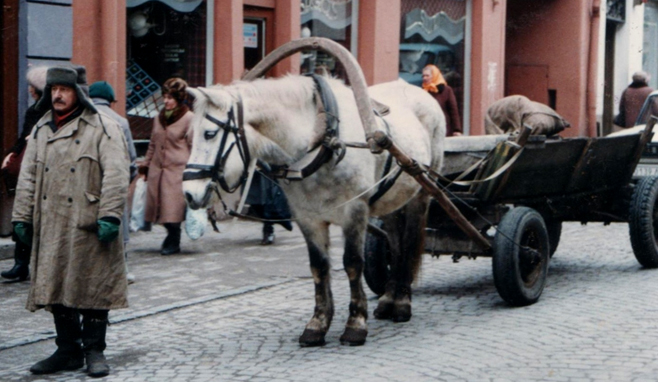
November 1990: Delivery of coal to properties in Pilies g. right in the centre of Vilnius. With horses. People pick it up in burlap sacks. Other times, the horse driver is simply shovelling the coal out on the sidewalk in front of the buildings on the ordering list.
Photo: Aage Myhre.
We land at Riga airport on a late November afternoon in 1990. Flights from western countries are still not allowed to land in Vilnius. A white Volga from the Lithuanian government is waiting for us. The driver is 70. So is the speed (km/h), so it takes us seven hours to be driven the 300 kilometres from Riga to Vilnius. Through Baltic darkness.

We are two Norwegians bumping through Latvia and Lithuania this November evening in a poorly padded back seat. The car has certainly springs and shock absorbers, but they don’t help much. Through Latvia and the northern part of Lithuania the roads are like roads in Norway, narrow and winding. Great is therefore my surprise when half the distance remains and a four-lane highway appears in a country I had expected would only be characterized by worn out poverty! But the top speed of the Volga remains the same.
Almost seven hours have passed when we pass a huge sign. VILNIUS it says, in enormous concrete letters. But it is still dark outside the car windows. Only when we drive down the hill towards the centre, we begin to see some faint lights. Even one neon light. 'Hotel Lietuva' it says. On top of what we understand must be a very tall building. But the darkness dominates entirely. The feeling of the Soviet Union.
"It is better to light a small candle than to curse the darkness." I come to think of words of the Chinese philosopher Confucius (K'ung Fu-tzu). This becomes my motto for my further works in and with Lithuania.
It is well past midnight when we finally arrive at the hotel. Hotel Draugyste (friendship), where state guests, the ‘stately’ guests, are placed in safe environments. With microphones everywhere.
|
|
|
The hotel's dining options are obviously closed at this time of day. We ask if they have room service or whether there are open restaurants to find in the neighbourhood. Stupid question obviously. We can see the facial expressions of the two cute girls behind the huge long reception desk. They shake their heads. Then one of them remembers that there is an open door behind the reception, to the hotel’s coffee shop. Maybe there is some food left there after the day’s business hours. We jump over the counter. It’s the only way to get in.
The armed guard, who so far has been sitting quietly in one of the deep lobby lounge chairs made of not-so-genuine leather, pops up and starts to object strenuously. Fortunately, only with his mouth. The girls manage to restrain him, and soon we are in full swing enjoying our feast. Half sandwiches of dark bread. With three kinds of cold cuts: cheese, sausage and dried sardines. The girls are even finding a few bottles of warm beer for us.
The beds appear to be the too short. But we are too tired to react.
|
|
Next morning we go for a walk in the Old Town. Before the official programme starts. What we find is a beautiful but dilapidated city. The façades are mostly unpainted. Plaster has fallen off. The very few shops have no colourful shop windows. It smells of terrible Soviet fuel from Ladas, which dominates the city traffic. Horses with the carriages are moving around bringing out coal and more to people. Time seems to have stood still here. People are dressed in grey or other dark colours. Women wearing headscarves or hats, men often with berets tilted towards one ear. No smiles. We, with our Western clothing, must be a very unusual sight for them. But nobody is watching us. They look down or away. I feel sadness. |
- Bookmark :
- Digg
- del.icio.us
- Stumbleupon
- Redit it
Brand new apartments in Vilnius Old Town!
- Posted by - (8) Comment
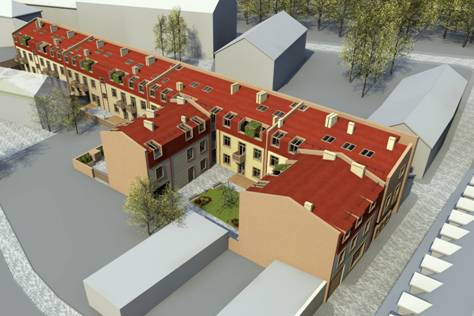
Kotrynos vartai is being built at Klaipedos Street in the very centre of Vilnius Old Town, close to the St. Catherine Church and the Teachers‘ House.
Illustration: Resolution/NEWSEC.
It is not often build new homes here in Vilnius Old Town. There are simply very few vacant spaces. The financial crisis has also contributed to 'freeze' the majority of new developments in Lithuania’s real estate sector.
But now it's finally something happening. A brand new apartment complex under construction in the heart of the Old Town, on a site that until recently was reserved for old garages from the Soviet era.
Kotrynos Vartai is the name, a complex of apartments and two commercial premises being built at Klaipedos street next to St. Catherine’s Church and the Teachers’ House.
The development includes:
- 33 apartments from 28 to 138 sq.m;
- The smallest units are 1-room studios, the largest spacey 5-rooms apartments (4 bedrooms);
- Two commercial premises facing Klaipedos street;
- Underground parking;
- Most of the apartments are equipped with terraces, balconies, high ceilings and fireplaces;
- Two closed green inner yards, with playgrounds.
The construction works started spring 2011, Completion in autumn of 2012.
The apartments are sold at prices varying from 6.700 LTL/sq.m to 8.900 LTL/sq.m. Till now eight apartments are sold.
More information at www.kotrynosvartai.lt.
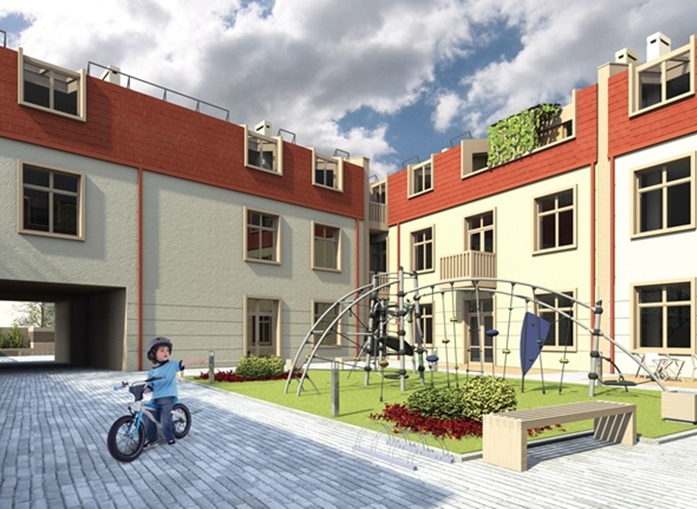
Kotrynos vartai will be a truly green and attractive oasis in the very centre of the city.
Illustration: Resolution/NEWSEC.
- Bookmark :
- Digg
- del.icio.us
- Stumbleupon
- Redit it
- Posted by - (0) Comment
How I came to Lithuania 21 years ago (1 of 6)
Some private memories by Aage Myhre, VilNews Editor-in-Chief
aage.myhre@VilNews.com
Summer of 1990:
Landsbergis to Norway

In the summer of 1990 it’s still little known in the west that there once was a country called Lithuania. The fact that this small nation, with its two Baltic neighbours, are engaged in a process of secession from the Soviet Union has still not achieved any major headlines in our western newspapers. The fall of the Berlin Wall is more important. We do not know that the Soviet President, Mikhail Gorbachev, has recently been in Lithuania to meet the country's Communist leader, Algirdas Brazauskas (both pictured left). The fact that Lithuania's prime minister, Kazimir Prunskiene (centre above), has recently been in Norway to try to get the oil company STATOIL to deliver oil to the country, which is now subjected to blockade by the Soviet power, has been heard little about. Then Parliament President Vytautas Landsbergis (pictured right) comes on his first 'official visit' to a Western country, to Norway. That changes a lot.
A young man with a ponytail enters our office community in the centre of Oslo, Norway. It’s a warm, sunny day, mid-summer 1990. Someone has told him that our office, with 16 different small firms, enjoys a relatively large network of contacts, lobbyists perhaps although I do not know much about what that word means. He tells us that he is adviser to a president of a country we have hardly heard of before now. The country is called Lithuania, the president Vytautas Landsbergis, he informs us. The advisor’s name appears to be Ramunas Bogdanas.
What we get to know, is that Landsbergis needs help in finding contacts at the highest Norwegian level in connection with his planned 'official visit' to Norway in late August, the first for a Western country. Bogdanas asks us to undertake such a task. Even if he cannot offer any payment for the job.
To read more, go to our SECTION 13 – THE WORLD IN LITHUANIA
- Bookmark :
- Digg
- del.icio.us
- Stumbleupon
- Redit it
Pulling extraordinary minds & brains together for the purpose of ‘rescuing’ Lithuania
- Posted by - (0) Comment
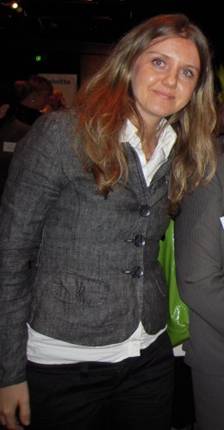 |
I have been reading some of the most interesting articles since the VilNews launch. There was one, in particular, that touched and impressed me deeply, it was an Oxfordian view on Lithuania's education. However, what has impressed me the most is the fact that you have been able to pull extraordinary 'minds & brains' together from all over the world for the purpose of 'rescuing' Lithuania as a nation, and fundamentally improve its current practices with respect to economic and political justice, business practices, educational sustainability and resilience and much, much more. Just wanted to say one more time THANK YOU!!!
|
“What has impressed me the most is the fact that you have been able to pull extraordinary 'minds & brains' together from all over the world for the purpose of 'rescuing' Lithuania as a nation, and fundamentally improve its current practices with respect to economic and political justice, business practices, educational sustainability and resilience and much, much more.”
- Bookmark :
- Digg
- del.icio.us
- Stumbleupon
- Redit it
Pulling extraordinary minds & brains together for the purpose of ‘rescuing’ Lithuania
- Posted by - (6) Comment
 |
I have been reading some of the most interesting articles since the VilNews launch. There was one, in particular, that touched and impressed me deeply, it was an Oxfordian view on Lithuania's education. However, what has impressed me the most is the fact that you have been able to pull extraordinary 'minds & brains' together from all over the world for the purpose of 'rescuing' Lithuania as a nation, and fundamentally improve its current practices with respect to economic and political justice, business practices, educational sustainability and resilience and much, much more. Just wanted to say one more time THANK YOU!!!
|
“What has impressed me the most is the fact that you have been able to pull extraordinary 'minds & brains' together from all over the world for the purpose of 'rescuing' Lithuania as a nation, and fundamentally improve its current practices with respect to economic and political justice, business practices, educational sustainability and resilience and much, much more.”
- Bookmark :
- Digg
- del.icio.us
- Stumbleupon
- Redit it
VilNews e-magazine is published in Vilnius, Lithuania. Editor-in-Chief: Mr. Aage Myhre. Inquires to the editors: editor@VilNews.com.
Code of Ethics: See Section 2 – about VilNews. VilNews is not responsible for content on external links/web pages.
HOW TO ADVERTISE IN VILNEWS.
All content is copyrighted © 2011. UAB ‘VilNews’.

 Click on the buttons to open and read each of VilNews' 18 sub-sections
Click on the buttons to open and read each of VilNews' 18 sub-sections 














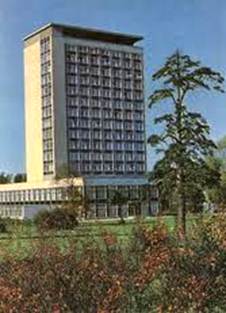
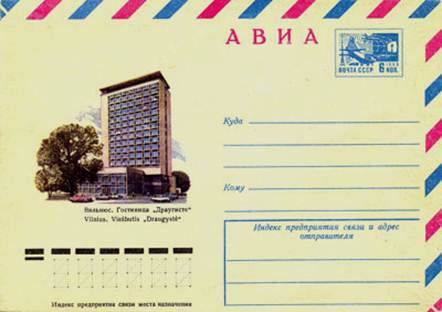
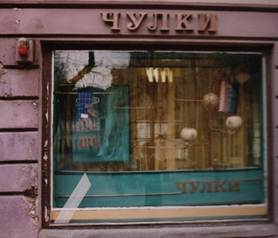









.jpg)



